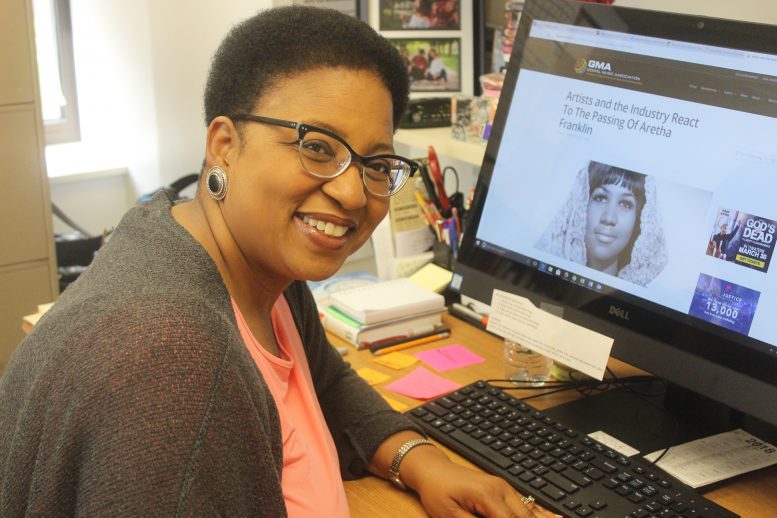By DAVID DUPONT
BG Independent News
When Barack Obama was inaugurated in 2009, Aretha Franklin was there to sing “My Country ‘Tis of Thee.”
The singer, who died Thursday of pancreatic cancer in her hometown of Detroit, had to be part of the celebration of the first African-American to become president. “She’s of a generation that knows a time when that seems like that would never come true, and it has come true,” said Angela Nelson who chairs the Ethnic Studies Department at Bowling Green State University. “She was there to sing and be part of this thing we thought would never happen and has happened.”
Franklin was born in 1942, the same year as Nelson’s mother.
Franklin had a bond with Obama. She could move him to sing as he did during a campaign stop in Detroit or move him to tears as she did during her version of “Natural Woman,” during the Kennedy Center Honors concert honoring the songwriter Carole King.
Her music was so embedded in the culture, Nelson said, she’s not sure when she first heard her, probably on the radio. But what made an impression on Nelson was “Amazing Grace,” a 1972 album that returned Franklin to her gospel roots even including preaching by her father C.L. Franklin.
Nelson remembers hearing this album growing up in the late 1960s and early 1970s in her maternal grandparents’ South Carolina home while her mother was in graduate school.
These gospel roots, Nelson, whose first degree was in vocal performance, said, served the singer well throughout her career, as they did others with big voices who crossed over into the world of pop. “Singing is like breathing for them.”
Few retained the link to gospel as much as Franklin did. “She maintained that connection.”
Coming up in her father’s Detroit church, she started young. That was not unusual, said Nelson, who studies female gospel singers. If youngster showed ability that talent was put to use in the church. “God-gifted her so you use that gift.”
“For people who grew up in the church, their training is almost unmatched,” Nelson said. “There are all these opportunities for immediate feedback. If you have a hallelujah going on or crying going on or hands lifted, you have feedback from the audience that you’re aligned with where they are, aligned with the spirit.”
Franklin also learned about being involved in social justice issues from her father who was a confidante of Dr. Martin Luther King Jr. Franklin also made her talents available to the Civil Rights movement.
“It took courage for her to be let her name be attached to social justice issues,” Nelson said. She offered to put up bail for activist Angela Davis. Many entertainers, Nelson said, tried to shy away from political statements before the 1970s, even when they were personally affected.
It was a time, Nelson said, when Nat King Cole’s network variety show went off the air after a season because no company wanted to sponsor a show hosted by a black man for fear of the negative reaction of white southern viewers and some in the north as well.
Detroit was itself the home of some of the greatest American music as well as the site of its most vicious race riots.
Nelson said she didn’t not experience this prejudice first hand. She heard of it from her grandparents, uncle and mother. She became more aware after starting her graduate studies at BGSU.
Franklin still remains important for her students as not just part of the history, but part of the musical and social continuum.
Nelson said she was struck by the realization on learning of Franklin’s death that a great voice had been silenced. It could be heard still on audio and visual recordings, but the living presence of the person behind that voice is gone forever.

